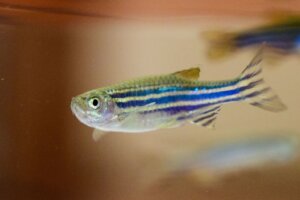This Jewish disease wreaks havoc. But it may have an upside.
The disorder — debilitating if untreated — may also offer protection against deadly tuberculosis

A recent study hints that Gaucher’s disease, a rare genetic disorder that is disproportionately found in Ashkenazi Jews, could offer protection against tuberculosis. Photo by Marcelo Ricardo Daros/iStock
A rare genetic disorder that disproportionately affects Ashkenazi Jews is also a safeguard against tuberculosis, a new study shows, and that discovery could explain a longstanding scientific mystery.
In Gaucher’s disease, fat accumulates in the cells of organs, often the spleen and liver. There are three types. Type 1, the most common, is not usually fatal but can cause anemia, bone fractures, and according to some studies, shortened life expectancy. Type 2 and 3 affect the nervous system and are more severe.
But the disease, which affects roughly one out of every 500 to 1,000 Ashkenazi Jews (about 100 times more frequent than the general population), may also explain why Jews have historically been less likely to die of tuberculosis, said Lalita Ramakrishnan, a leading tuberculosis researcher at Cambridge University. She and her colleagues published this finding in the Proceedings of the National Academy of Sciences of the United States of America in February.
Clues to the connection between Gaucher’s and tuberculous emerged from a prior study published in the journal Cell in December 2014. Then, Ramakrishnan and her team had used genetically modified zebrafish, which have a similar genetic structure to humans, to identify a mutation that made humans more susceptible to tuberculosis. That mutation led a type of white blood cell called macrophages to store up protein in a portion of the cell, getting so engorged that they became sluggish in fighting off TB infection.
Given that this mutation is rare in humans, the team decided to recreate the experiment with a more common one — the one that causes Gaucher’s disease. With Gaucher’s disease, the macrophages store up fats, not protein. Still, they suspected the outcome would be similar, and as predicted, the microphages became engorged with fat and didn’t move well.
But as far as TB resistance, the researchers were in for a surprise.
“Of course, we had expected that the fish would be susceptible except that they weren’t. They were hyper-resistant.”
Examining hundreds of zebrafish, Ramakrishnan said that in those without the mutation, fish infected with the tuberculosis bacteria would develop the illness in around 80-85% of cases. But for those with the Gaucher’s disease mutation, that number dropped to 40-45%.
The results indicate that the specific fats stored in cells affected by Gaucher’s disease are toxic to tuberculosis, a disease that killed 1.6 million people globally in 2021 alone, making it the deadliest infectious in the world that year aside from COVID-19.

Explaining Darwin?
Ramakrishnan cautioned that more research is needed before it can conclusively be determined whether the defense against TB holds true for other bacteria but that based on her team’s lab studies. “It basically works like a disinfectant,” she said.
But it’s unclear if the findings can result in any new treatments that would be more effective than those currently available for tuberculosis. William Bishai, a professor at Johns Hopkins Medical School specializing in infectious diseases, noted that while a hardier strain of TB was big news in 2005, around 95% of cases are still treatable with leading antibiotics.
“You don’t want to have Gaucher’s disease just because it happens to confer a little bit of protection against another disease you don’t want to have,” he said, adding that, in theory, it could be possible to develop drugs that encourage cells to act like those involved in Gaucher’s disease so that they afforded protection but not symptoms of Gaucher’s.
Still, the more recent Gaucher study has helped scientists understand a long-standing mystery about Ashkenazi Jews: according to Darwin’s theory of natural selection, the genetic mutation causing Gaucher’s disease should have put carriers at a disadvantage, particularly before modern medical treatments were developed. Those who carry the disease should have been less likely to breed and pass it on to future generations than those without the mutation.
Bishai said a theory has circulated for years that “maybe the Gaucher’s mutation that’s common in Ashkenazi Jews protects against something, and one disease that had been, and still is, prevalent in Eastern Europe and and western Russia is tuberculosis.”
Word of the new findings has spread among those with Gaucher’s.
Aviva Rosenberg, who has Type 1 Gaucher’s disease and is the co-founder and co-president of the Gaucher Community Alliance said that while study is “fascinating,” many people with the disease came forward on a community message board with anecdotes of family members who had tested positive for both Gaucher’s and tuberculosis.
Ramakrishnan cautioned against drawing sweeping conclusions. While the evidence appears to point to an upside of the Gaucher’s mutation, she said, much work remains to be done to confirm whether what was observed in zebrafish will hold true for humans.
“Is it possible that it was selected because of the TB? Yes, it is plausible,” she said. “Have we proven it? No.”
























